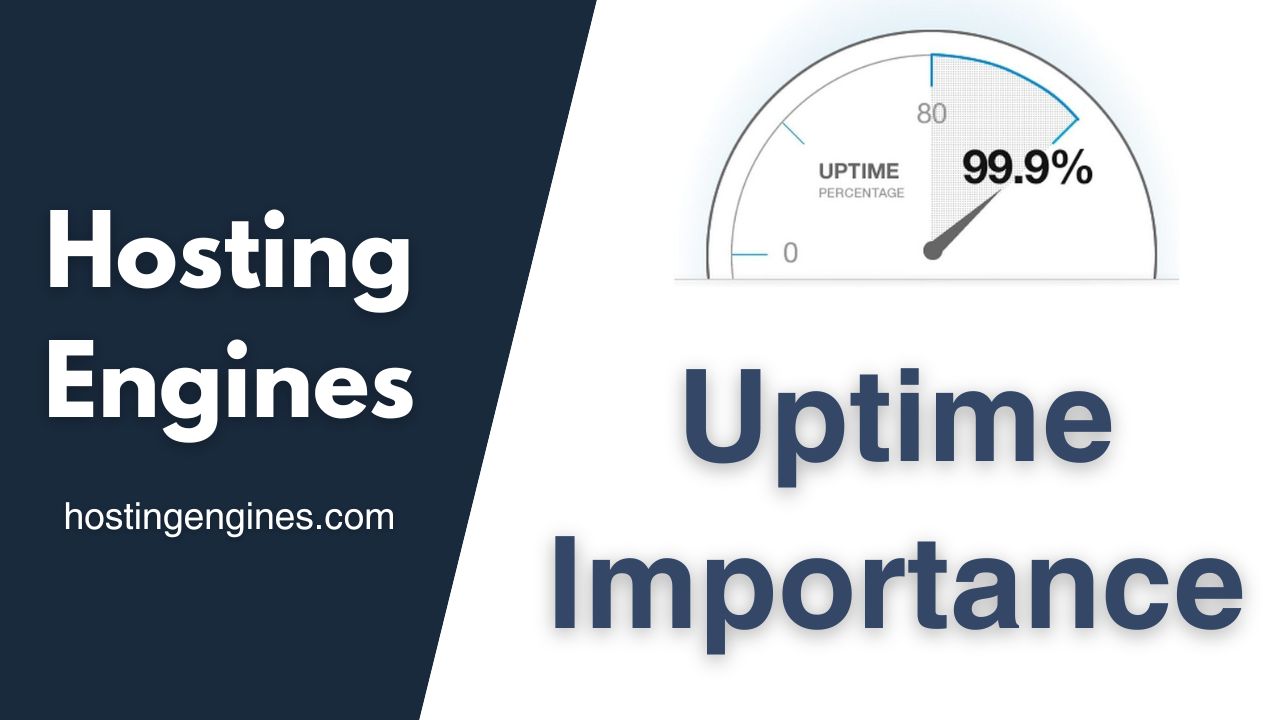Having a website or a blog is crucial for anyone who wants to establish an online presence. But just having a website is not enough.
The website needs to be accessible all the time. This is where the concept of ‘uptime‘ comes into play.
The uptime is granted and guaranteed by the web hosting of your website.
- Bad Uptime: Your website will go down and won’t be accessible, leading to lost revenue, bad user experience, and potential SEO penalties.
- Good Uptime: 99.9% or higher. Your website remains trustworthy and accessible, ensuring consistent user experience, higher potential earnings, and better SEO rankings.
What is Uptime?
Uptime is the amount of time a website is operational and accessible to users. It’s expressed as a percentage, representing the proportion of time the website’s server is up and running compared to the total time.
For instance, an uptime of 99.9% means that in a given month, your website would be down for approximately 43 minutes and 12 seconds in total.
Why Uptime is Important For Websites?
Good uptime is a must for websites. It’s non-negotiable to ensure the web hosting provider you selected for your website offers excellent uptime. Here’s why:
1. Credibility & Trust:
Your website serves as the first impression for potential customers or visitors. If users repeatedly find your site inaccessible, it negatively impacts your brand’s reputation.
Trust is hard to gain but easy to lose. Consistent website uptime reflects to visitors that you are reliable and credible.
Imagine you often visit a store, but it’s usually closed when you get there. After a while, you might stop going, assuming it’s always closed.
Same as an online store that goes down frequently. Potential customers will doubt its legitimacy and might hesitate to make purchases or come back again.
2. User Experience & Engagement:
Websites that suffer from frequent downtimes, frustrate users, leading to decreased engagement, lower session durations, and increased bounce rates.
If readers cannot access your website when they want, they will leave it and seek alternatives. And they may never come back.
3. SEO Rankings:
Search engines prioritize delivering the best user experience. Websites with high uptime are viewed as reliable and are thus more likely to rank higher in search results.
Frequent downtimes can signal to search engines like Google that your website is not reliable and is not helpful to their users.
Also, if a competitor’s site is down and yours is up, this may give you a competitive advantage in the eyes of Google.
4. Loss of Revenue:
For businesses, especially e-commerce platforms, uptime is directly related to revenue. Every minute the website is down could equate to lost sales.
An e-commerce platform making $1,000 an hour would lose $16.67 for every minute of downtime. If their website had a total of 8 hours of downtime in a year (99.9% uptime), that’s a potential loss of $8,000.
5. Customer Support and Service Metrics:
For businesses offering online support through their website, like live chat or support tickets, better uptime ensures consistent customer service.
Downtimes, on the other hand, can result in missed support requests, leaving frustrating customers with no support, and potentially losing customers and brand reputation.
6. Operational Continuity:
Many businesses today rely on cloud-based applications and platforms for their operations such as website crawlers. Downtime can disrupt not just the front-facing website but also the backend operations.
7. Digital Marketing and Ad Campaign Effectiveness:
If you’re running ad campaigns to drive traffic to your website, a frequent down can lead to wasted ad spend
Visitors from paid ads who find your site inaccessible will leave immediately, as they do not find what they are looking for. eventually, you’ve lost potential conversions and increased your customer acquisition costs.
8. Business Partnerships & Collaborations:
If your website hosts affiliate links, run advertisements, or is part of a larger network of sites, consistent uptime is crucial.
Frequent downtimes can strain business relationships and deter potential partners from collaborating with you.
9. Data Integrity and Security:
In certain situations, when a server experiences interruptions or downtimes, it can negatively affect the accuracy and completeness of the data stored on it.
For example, if a user is making a purchase or filling out a form and the server goes down, the data might be lost or only partially saved.
This could lead to order discrepancies, some registrations might not finish properly, or data might get damaged or altered in unwanted ways.
Additionally, if a server is often down or experiencing interruptions, it could suggest that its security isn’t strong. This could make it more attractive to hackers and increase the risk of cyberattacks.
10. Resource Utilization and Cost Efficiency:
Web hosting isn’t free. When you’re paying for hosting services, you’re essentially renting server resources for a specific time.
If your server is often down, you’re not making the most of the resources you’ve paid for, and you might even be wasting money.
11. Brand Perception in the Long Run:
It’s not just about the money you might lose right now. How people see your brand in the future is just as important.
If you are facing frequent website outages with your service, people might start to think your brand isn’t trustworthy or professional. Fixing that image can take a lot of time and effort.
Web Hosts with Good Uptime
| No. | Hosting Provider | Uptime | Uptime Guarantee |
|---|---|---|---|
| 1 | Liquid Web | 99.9992% | 100% |
| 2 | DigitalOcean | 99.99% | 100% |
| 3 | Vultr | 99.99% | 100% |
| 4 | DreamHost | 99.98% | 100% |
| 5 | A2 Hosting | 99.9% | 99.9% |
| 6 | Inmotion | 99.9% | 99.9% |
| 7 | Hostinger | 99.9% | 99.9% |
| 8 | HostGator | 99.9% | 99.9% |
Conclusion: Uptime a Top Priority
Uptime is a non-negotiable factor when it comes to choosing a when host for your website whether you’re a blogger, an e-commerce platform, or an organization.
Consistent website accessibility is crucial for maintaining credibility, better user experience, and better search engine rankings, and eventually, avoiding potential revenue loss.






